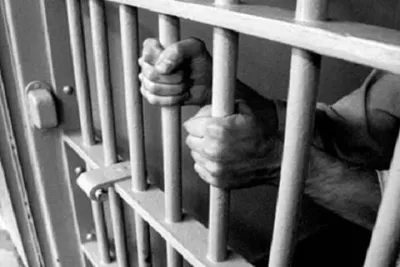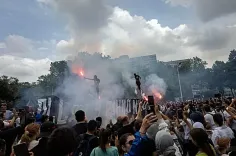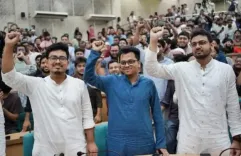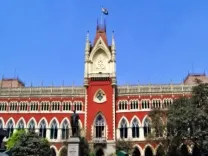Why Was Former Secretary Shafiqul Islam Sent to Jail?

Synopsis
Key Takeaways
- Former Secretary Shafiqul Islam sentenced under the Anti-Terrorism Act.
- Nationwide outrage follows the arrests of several political figures.
- The case underscores rising tensions regarding freedom of speech in Bangladesh.
- Political dissent is increasingly being suppressed under the current interim government.
- Awami League condemns the actions as mob terrorism.
Dhaka, Sep 10 (NationPress) A court in Bangladesh has ordered the incarceration of former secretary Bhuiyan Mohammad Shafiqul Islam in connection with a case filed under the Anti-Terrorism Act, as reported by local media.
Dhaka Metropolitan Magistrate Md Ariful Islam issued the ruling after rejecting Bhuiyan's bail request, which was made following his arrest on Tuesday, when police presented him to the court.
Defence attorney Mohammad Liton Miah noted that the magistrate also denied bail to another former secretary, Abu Alam Md Shahid Khan, arrested in the same case on Monday.
This incident follows the detention of 16 individuals, including former minister and freedom fighter Abdul Latif Sidiqqui and Dhaka University Professor Sheikh Hafizur Rahman, under the Anti-Terrorism Act, which has ignited outrage nationwide.
Confirming the news, the Dhaka Metropolitan Police stated that Bhuiyan was taken into custody due to his alleged involvement in a recent event organized by the platform 'Mancha 71' at the Dhaka Reporters Unity (DRU), as reported by leading Bangladeshi news outlet bdnews 24.
The case originates from a discussion held on August 28, where Siddiqui, Rahman, and others participated in a roundtable titled 'Our Great Liberation War and the Constitution of Bangladesh', organized by Mancha 71.
During the discussion, Professor Rahman stated, "We are witnessing an ill attempt to undermine the country’s constitution. Organizations like Jamaat (Bangladesh Jamaat-e-Islami), Shibir (Islami Chhatra Shibir), and the National Citizen Party (NCP) are behind this. Led by Muhammad Yunus, they have been disrespecting freedom fighters with garlands of shoes." This was reported by Prothom Alo, a prominent Bengali daily.
Following Rahman’s remarks, a group disrupted the DRU event, tearing down the banner and detaining the participants before handing them over to law enforcement.
According to the case filed at Shahbagh Police Station, the accused allegedly sought to destabilize the nation through armed actions during the roundtable discussion hosted by Mancha 71, as stated by The Business Standard.
These recent developments occur amid an ongoing crackdown on leaders and activists affiliated with the Awami League under the interim government led by Muhammad Yunus.
Recently, the Bangladesh Awami League condemned the arrests of "heroic" freedom fighters and those inspired by the spirit of the country’s 1971 Liberation War, labeling the actions as mob terrorism under the Yunus administration.









